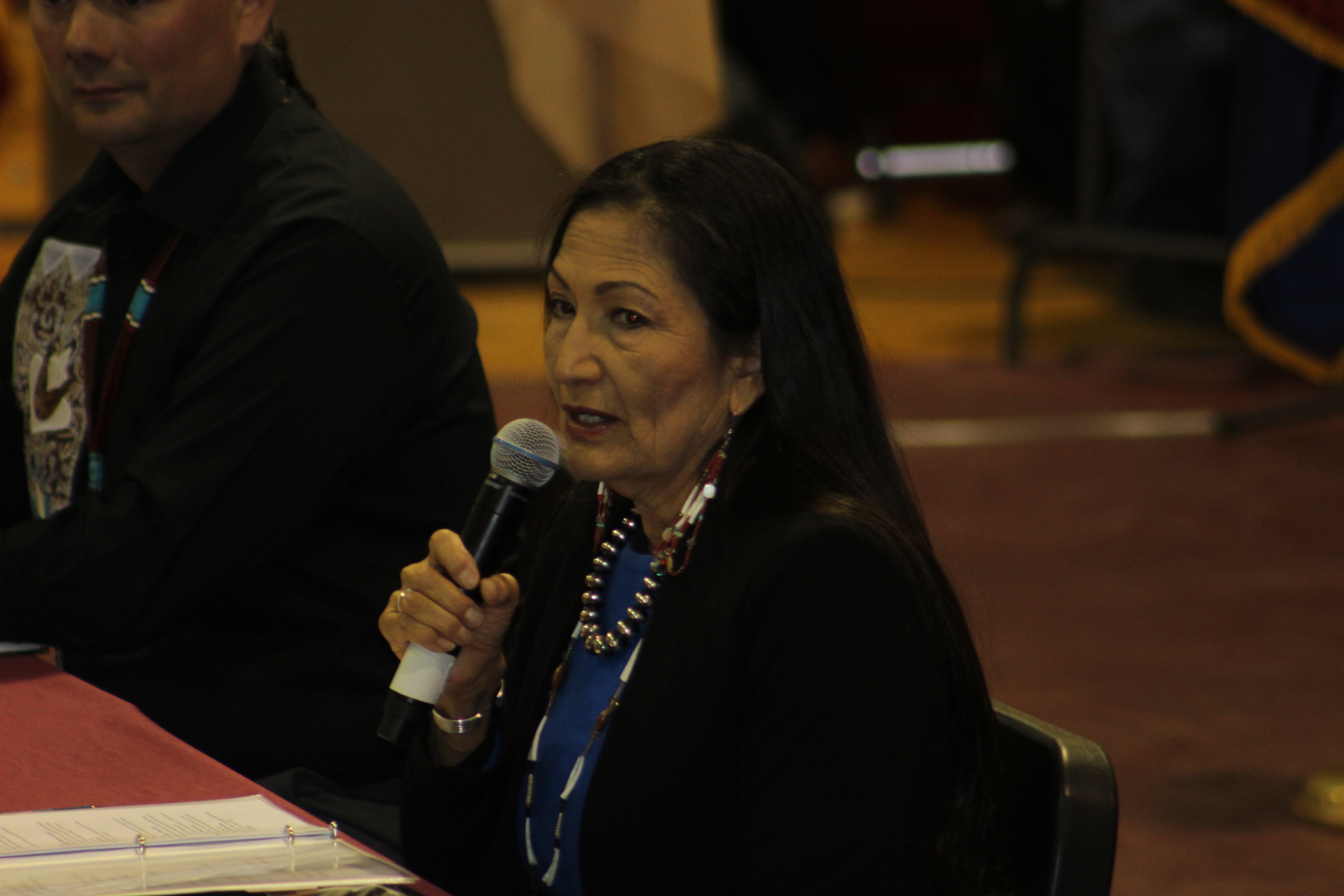
- Details
- By Native News Online Staff
The Department of the Interior announced on Monday that Interior Secretary Deb Haaland (Laguna Pueblo) and Assistant Secretary for Indian Affairs Bryan Newland (Bay Mills Indian Community) will travel to the Seattle, Washington area on Sunday, April 23, 2023 for the sixth stop on “The Road to Healing” tour.
The tour is a year-long tour across the United States that provides Native survivors and their descendants of the federal Indian boarding school system an opportunity to share their experiences.
In June 2021, Secretary Haaland launched the Federal Indian Boarding School Initiative to shed light on the troubled history of Federal Indian boarding school policies and their legacy. On May 11, 2022, the Department released Volume 1 of an investigative report as part of the Initiative, which calls for connecting communities with trauma-informed support and facilitating the collection of a permanent oral history.
Previous stops for The Road to Healing tour include Native American communities in Anadarko,Oklahoma, Pellston, Michigan, the Rosebud Indian Reservation in South Dakota; the Gila River Indian Community in Arizona; and Many Farm, Arizona on the Navajo Nation.
The exact location in the Seattle area was not announced on Monday. Native News Online will provide an update once more information is available.
More Stories Like This
Native News Weekly (August 25, 2024): D.C. BriefsUS Presidents in Their Own Words Concerning American Indians
Native News Online Marks 15 Years of Warrior Journalism
I’m a Minneapolis Postal Worker. This Is What I Saw.
Next on Native Bidaské: Inside Dark Winds with the Cast of Season 4
Help us defend tribal sovereignty.
At Native News Online, our mission is rooted in telling the stories that strengthen sovereignty and uplift Indigenous voices — not just at year’s end, but every single day.
Because of your generosity last year, we were able to keep our reporters on the ground in tribal communities, at national gatherings and in the halls of Congress — covering the issues that matter most to Indian Country: sovereignty, culture, education, health and economic opportunity.
That support sustained us through a tough year in 2025. Now, as we look to the year ahead, we need your help right now to ensure warrior journalism remains strong — reporting that defends tribal sovereignty, amplifies Native truth, and holds power accountable.
 The stakes couldn't be higher. Your support keeps Native voices heard, Native stories told and Native sovereignty defended.
The stakes couldn't be higher. Your support keeps Native voices heard, Native stories told and Native sovereignty defended.
Stand with Warrior Journalism today.
Levi Rickert (Potawatomi), Editor & Publisher


